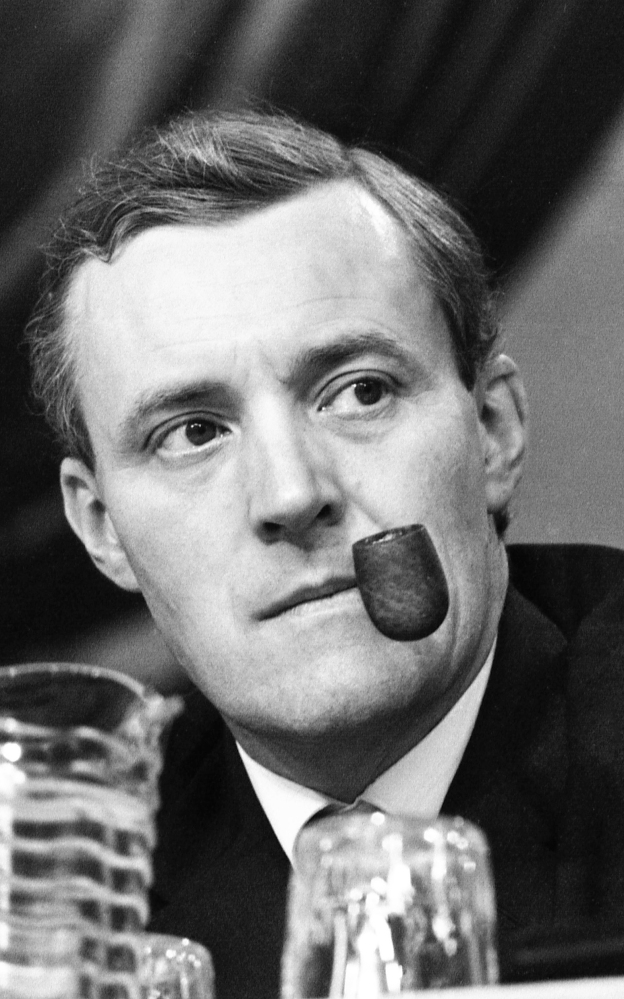LONDON —Tony Benn, a committed British socialist who irritated, fascinated – and bored – Britons through a political career spanning more than five decades and who renounced his aristocratic title rather than leave the House of Commons, has died. He was 88.
His family said in a statement that Benn died peacefully at his home in west London on Friday. It did not give a cause for death.
Labour Party leader Ed Miliband praised Benn as “iconic figure of our age” who will be remembered as a “champion of the powerless, a great parliamentarian” and a politician of great conviction.
“Tony Benn spoke his mind and spoke up for his values. Whether you agreed with him or disagreed with him, everyone knew where he stood and what he stood for,” Miliband said. “For someone of such strong views, often at odds with his party, he won respect from across the political spectrum. This was because of his unshakable beliefs and his abiding determination that power and the powerful should be held to account.”
Prime Minister David Cameron also paid tribute while admitting his ideological differences.
“He was a magnificent writer, speaker, diarist and campaigner, with a strong record of public and political service,” said Cameron, a Conservative, in a statement Friday. “There was never a dull moment listening to him, even when you disagreed with everything he said.”
Benn held Cabinet posts in Labour Party governments in the 1970s, and clung unswervingly to his leftist beliefs while his party, in opposition, moved to the center and re-emerged to take power again as New Labour. The change left Benn out of step with his party’s new, younger leaders.
“New Labour’s prime object is to destroy old Labour,” Benn complained when Tony Blair led the party to a landslide victory in May 1997, ending a generation of Conservative Party rule. “But you can’t just wish away a movement, a history, with a sound bite. You just can’t do it.”
Benn, who favored abolition of the monarchy, British withdrawal from the European Union, and any strike that was going, hadn’t changed.
But his image did.
He was over time transformed from the demonized figure of the ’70s and ’80s to that often-treasured English archetype: the radical dissenter.
“He had this wonderful vision of the working class,” former left-wing Labour lawmaker Joe Ashton recalled in a 1995 BBC television documentary. “It was almost like the Noble Savage and sometimes we had to bring him down to earth.”
Send questions/comments to the editors.



Success. Please wait for the page to reload. If the page does not reload within 5 seconds, please refresh the page.
Enter your email and password to access comments.
Hi, to comment on stories you must . This profile is in addition to your subscription and website login.
Already have a commenting profile? .
Invalid username/password.
Please check your email to confirm and complete your registration.
Only subscribers are eligible to post comments. Please subscribe or login first for digital access. Here’s why.
Use the form below to reset your password. When you've submitted your account email, we will send an email with a reset code.